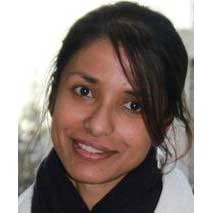
A few weeks ago, the UK’s Department for International Development (DFID) concluded a three-day visit to the Bank with a presentation by its Chief Economist, Stefan Dercon. ‘Aid is Politics’ traversed the big picture debates in economics, politics and development with ease, but the focus was the practice of aid.
Once we’re on the ground at scale, we become part of the politics. Not only do domestic politics shape the impact of our interventions, our programs today affect politics tomorrow. Economic policy, although seemingly about ‘removing market failures and correcting distortions’, impacts upon the distribution of rents or income, at times adversely affecting political equilibria by benefitting already powerful groups.
Since walking away from politically fraught environments is not an option (aid practitioners are “the intervention squad”), we need to constantly analyze, adapt programing to politics, be creative, make political engagement endogenous, and try to nudge aspects of the political settlement to a better place.
Although Stefan gave a lively presentation, what struck me was not the content -- over the last decade, a virtual consensus has formed in development praxis that political drivers shape development outcomes, and that effective interventions require both deep understanding of the distribution of power and resources in a given country and the flexibility to adapt to changing context. Most striking was the mission underlying Stefan’s comments.
DFID recognizes the centrality of politics to aid (and often aid to politics) at the highest levels of its organization and has made a commitment to operationalizing political economy (PE) and adapting its corporate processes to this end – from diagnostics, strategy, programming and measurement of development effectiveness to recruitment and training.
And, as an arm of a key shareholder and partner, DFID wants the Bank to keep this agenda front and center. Indeed, a central concern of DFID’s visit was the extent to which the Bank was incorporating political economy in its diagnostics and strategy, at sector and project levels, and its work in fragile and conflict-affected states.
While we have much in common, the differences between the two institutions and their business models emerged during the discussion. A bilateral is an arm of a sovereign Government, has the political intelligence of its foreign office to draw upon, does not have issues of mandate or the sensitivities of shareholders to contend with, nor what comes with being a public international organization (for instance, DFID’s country diagnostics are not public). DFID is smaller, has a system of independent advisory cadres which share a common training, with PE being taught far beyond the governance cadre. In contrast, Bankers are a heterogeneous lot, often ‘multi-tribal’, even in a single global practice.
More importantly, the Bank is a highly decentralized institution – operations are essentially forged at country level by Country Directors, Regional Vice-Presidents and country teams, which means there is considerable variation across the Bank. Certainly the most politically intuitive CDs with whom I have worked have been deeply aware of the country context, supported staff working in a politically sensitive manner, and shown a preparedness to adapt programming to changing dynamics.
A prominent attempt to institutionalize this approach has been in Nigeria -- deep contextual understanding informs innovative project design, and more flexible modalities allow for adaptive learning during project implementation.
Yet, with institutional incentives to lend, and the project model and cycle being largely unchanged, forging more politically sophisticated dialogue and operational engagements remains uneven, a work in progress. There is also a tension between the way we are organized and the fundamental premise of PE. And, since political savvy is yet to be valued as a core competency, we don’t always have the right staff to mainstream PE.
Political economy is mentioned explicitly in the Bank’s six institutional priorities identified by the W process, and more analysis is being done today than ever before. It is increasingly seen as part of good development practice and has influenced mainstream practice in some sectors. The Bank’s work on developmental leadership, coalition building, and transnational partnerships reflect an attempt to work politically, leveraging global and domestic legitimacy of governments as currency.
While several Systematic Country Diagnostics (SCDs) under preparation have strong PE elements, perhaps greater consistency of approach at the strategic level could be achieved by PE being robustly integrated into SCD Guidelines.
More important are authorizing environments that create the space and capacities for forging politically sophisticated engagements at country level, which both successfully navigate the political dynamics of a country and comprehend that we are part of them.


Join the Conversation